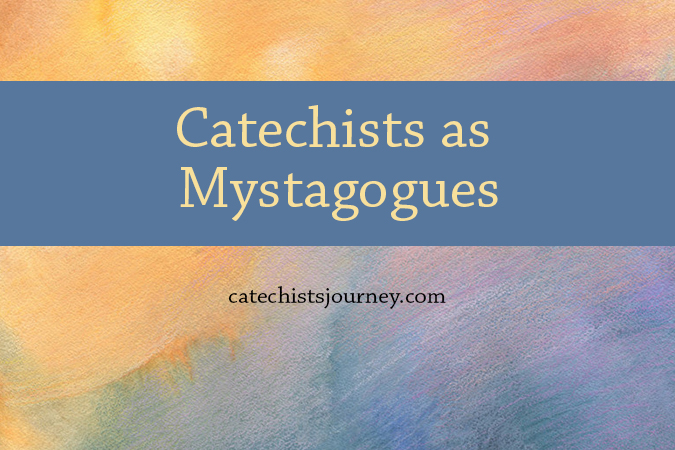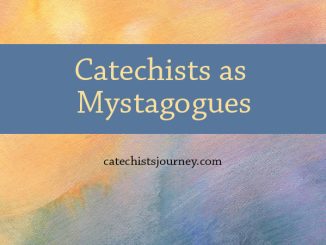
As mystagogues, we catechists are called to invite and accompany others into the Paschal Mystery of Jesus Christ. This transformative experience is essentially about embracing another way of being human: thinking, speaking, and acting as citizens of the Kingdom of God. In practical terms, this means that we must be about the work of helping others think, speak, and act differently!
How do we do this? By encouraging and teaching Catholic practices. In many ways, these practices result in us standing out in a crowd instead of blending in. This is, of course, countercultural; there is great pressure, especially for young people, to conform and blend in. Too often, this pressure affects the manner in which we practice our faith. Bishop Robert Barron has spoken of the unfortunate reality of “beige Catholicism”—an approach to the Catholic faith that, in his words, is “culturally accommodating.” If others are to “know we are Christians by our love,” then that must be evident. As Catholics, our thinking, speaking, and acting are characterized by the following:
- A sense of sacramentality. We rely on tangible, visible signs to encounter the intangible, invisible God. And so, we use signs, symbols, rituals, and gestures to communicate the mystery of faith in our daily lives. Practices include the use of sacramentals (actions such as making the Sign of the Cross, blessing others, bowing, or genuflecting, and objects such as rosaries, medals, scapulars, candles, or statues), the marking of time according to a liturgical calendar (feasts and seasons), fasting and abstaining from meat, lighting candles for others, and praying novenas.
- A commitment to community. As beings created in the image and likeness of our Trinitarian God, we are inherently relational. And so, we work at building, sustaining, and living within community. Practices include stewardship (sharing of time, talent, and treasure), sharing the Gifts of the Holy Spirit, praying with the Communion of Saints, praying with patron saints, drinking from the “one Cup,” and extending hospitality.
- A respect for human life. We believe that all human life—from the moment of conception to the moment of natural death—is sacred. Therefore, we show respect for the dignity of each person’s life. Practices include the corporal works of mercy, working for justice, living virtuous lives, working for the common good, caring for creation, supporting family life, and keeping the Ten Commandments.
- A reverence for Scripture and Tradition. We inherit a rich heritage of teaching, grounded in Scripture and Tradition. And so, we revere God’s Word in Scripture and the Church’s magisterial teachings. Practices include making pilgrimages; learning about the lives of the saints; reading, studying, and praying with Scripture; reading Church documents; reading inspirational literature; learning and praying traditional prayers; and learning doctrinal formulas.
- An attitude of faith and hope. We believe that Jesus has defeated sin and death through his own Death and Resurrection. And so, we are an Easter people, who carry a disposition of faith and hope and not despair. Practices include embodying and exhibiting the Fruits of the Holy Spirit, living the Beatitudes and the spiritual works of mercy, listening to and singing hymns, and going on retreats.
As mystagogues, we do well to apprentice others in these Catholic practices so as to help people think, speak, and act as citizens of the Kingdom of God, whose “accents” give us away!
(For more about these Catholic practices, check out my book, Practice Makes Catholic: Moving from a Learned Faith to a Lived Faith.)




Be the first to comment